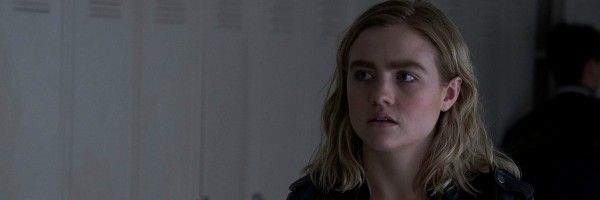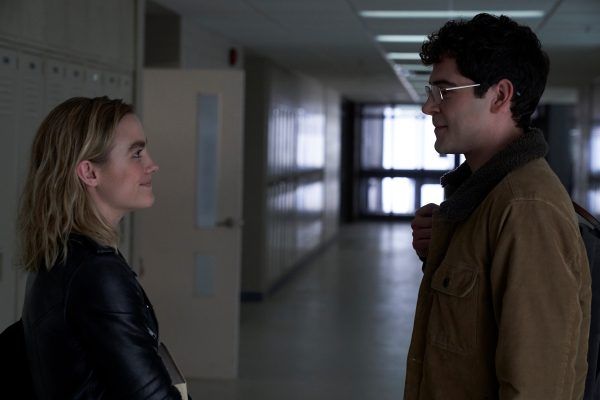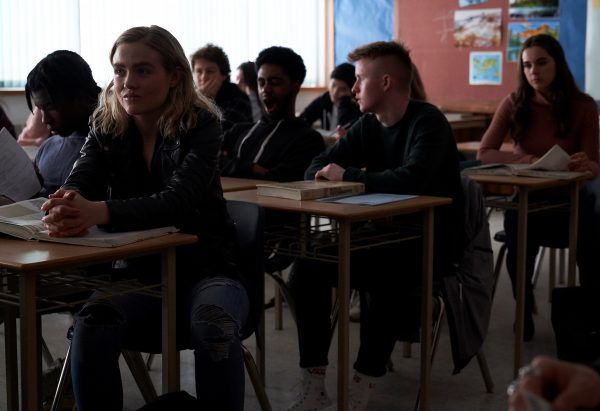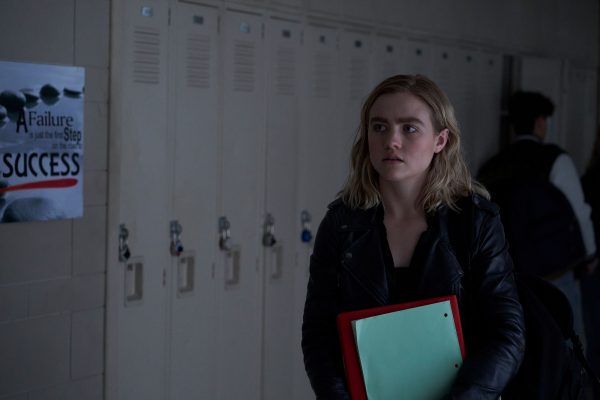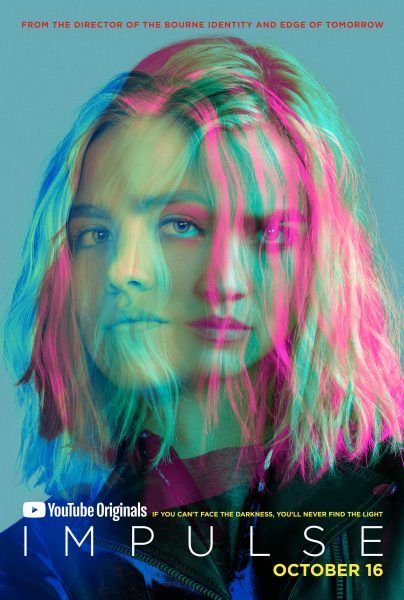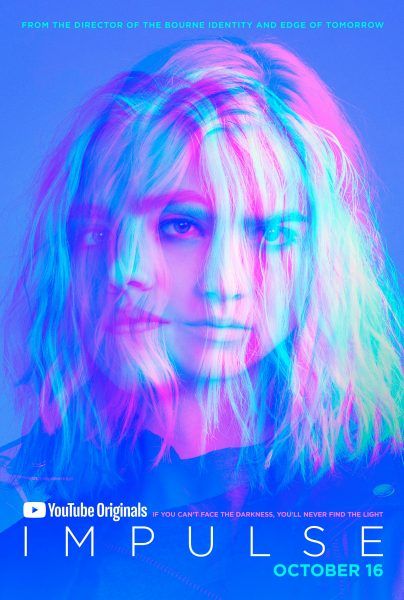From executive producer Doug Liman and showrunner Lauren LeFranc, the second season of the YouTube Originals drama series Impulse continues to follow Henry Coles (Maddie Hasson), as she tries to gain understanding and control of the ability to teleport that she found herself with, after experiencing a traumatic event. And while she has the help of friends, Henry still struggles with whether this mysterious power will endanger the people that she loves.
During this 1-on-1 phone interview with Collider, actress Maddie Hasson talked about playing such an internalized character, how quickly she understood who Henry is, collaborating with the creative team, what it might take for Henry to view her ability as a gift rather than a curse, finding empowerment in facing trauma, playing someone who’s more relatable than likable, and her hopes for a third season. She also talked about being a part of James Wan’s return to indie horror with Malignant, and the importance of playing characters that are very different from each other.
Collider: This seems like such a tough character to play because so much of her emotionality is internal. Is it hard sometimes to contain all of that inside of you?
MADDIE HASSON: Yeah, it’s definitely interesting to play somebody who internalizes a lot of her emotions because I think there’s a tendency when you’re creating a story, to want to see some of those beats externalized. It’s easy to want to go in that direction, but that would go against the character. So, it’s hard finding a balance of getting what we need to tell the story while also staying true to who she is and the reality of her, as a person.
At the same time, was there a moment that you felt like you really got her and knew who she was? Was that something that happened pretty early on for you?
HASSON: Yeah, that happened really early on for me with Henry. I really understood her and felt like I was very similar to her, as a teenager. I was very often on my own, and I had a bit of a chip on my shoulder and I felt misunderstood, and all of the things that go with being a lonely, outcasted teenager. So, I understood that aspect of her. But going into Season 2, I felt a lot more comfortable, as far as holding my own in that space. I felt a lot of pressure going into Season 1 ‘cause I was like, “Oh, my god, how can I do this? How can I be the lead in a show, in this way? I feel really nervous. I don’t want to let anybody down.” With Season 2, I felt a lot safer, if that makes sense.
It does make sense, especially because you’re just trying to figure out what the show is, in Season 1, and everybody’s relationships are, and you know that a lot better in Season 2, so you can feel more confident in that.
HASSON: Yeah. Also, the main fear you have, as an actor, is that just don’t wanna fuck it up. You don’t wanna get fired. You don’t wanna be the one that messes everything up. And so, in Season 1, that feeling was really magnified. Going into Season 2, we were all a big family already and it just felt a lot more comfortable. I was like, “It’s okay, if I fuck up a little bit.”
This is a project that Doug Liman has been wanting to do for about a decade. What it’s been like to work with him on it, and with your showrunner, Lauren LeFranc, and create and develop this world and Henry’s place in it, and have that evolve, over two seasons now. What’s it been like for you to have that collaborative relationship?
HASSON: It’s really been incredibly lovely, and I feel really, really fortunate because Doug Liman and Lauren LeFranc are obviously both masters at what they do and they’re both also really kind and generous people, just as individuals, but also as working partners. They’re lovely and very collaborative, and really wanna listen to what you have to say and what your opinions are, which isn’t super commonplace when you’re a younger actor. There’s an element of trust that needs to be established, having a longer career, before you can say, “Hey, I think we should do this.” But from the jump, they were like, “What do you think?” And that made me feel really comfortable and confident and happy.
It definitely seems like Henry isn’t even at the point of deciding whether or not she wants to be a hero. She’s still at that point of wondering whether this ability is a gift or a curse, and it really seems like more of a curse, right now. What do you think it would take for her to see that ability as a gift?
HASSON: I’ve never gotten that question before. That’s so interesting. I don’t know. I think by the end of Season 2, she gets a little taste of what kind of freedom it could bring her, and that could help her start to see it as a gift. But everything comes with a price, especially in this show. Nothing is black and white. And I think Lauren LeFranc really did that intentionally because that’s true to life. The reason why she goes to the grand place that she goes to, at the end of Season 2, is because she’s cutting ties with her mom. She gets a lovely taste of freedom. She goes to Barcelona and feels excited about her life, for the first time, in a long time, but the only reason she’s doing that is because she’s just had to essentially break up with her own mother. So, it’s always a little bit bittersweet, with our gal Henry.
It seems like there’s still that question of whether or not this could ultimately be a superhero or a supervillain origin story, depending on how things ultimately turn out for her. Typically, those kinds of stories, we get on such a big scale, but this really has been a show that’s a character drama about sexual assault, wrapped in this supernatural thriller about a teenager with a superpower. What’s it been like for you to get to explore this kind of story, in such a personal and often traumatic way?
HASSON: That’s a hard question to answer because it’s been difficult, but it’s also been really worthwhile, and it’s really helped me to grow and learn, as an actor and as a person. I’ve become more vulnerable, which we’re all reluctant to do, but you’re forced to do, when you’re dealing with such heavy material. Something like sexual assault is very real and very present, in people’s everyday lives, and it’s really sad. I wanted to deal with that in a way that was careful and deliberate because it was important to me to get it right. It’s hard, but it feels like you’re doing something that matters.
This show doesn’t let Henry ignore what happened to her. She has to deal with it, whether she likes it or not. Clearly, it’s easy to see why she wouldn’t want to, but at the same time, in order to master her power, she really does have to deal with the trauma that happened to her. Do you feel like coming to that realization that she really needs to face that trauma head-on will ultimately empower her?
HASSON: Ultimately, it does empower her, in small moments. You have small moments of victory throughout Season 2, and even some in Season 1, but it’s always followed by a little knockback or a little punch to the gut because that’s how it is, in real life. You never really get over what happened to you, unfortunately. It’s always there. It follows you, for the rest of your life. It’s a part of who you are now. And I think Lauren has told that story well, with Henry, because she can have a great moment and she can have a triumphant moment, and then, the next second is her falling on her face and, and that’s how life is.
Henry is more relatable than she is likable, sometimes.
HASSON: Oh, all the time. You can say all the time. That’s fine. We wanted her to not be likable, so that’s good.
How much fun is that for you, as an actor, to really be able to delve into and explore?
HASSON: I love it so much. It’s so fun for me. When you were saying the thing about not being sure whether Henry is gonna be a hero or a villain, I truly hope that she will be a villain. I don’t think that there are really clear cut heroes or villains, and I don’t think that’s how we would do it, but I want her to be villain, a little bit. I do. I think that’s more interesting to play. I like that she’s not likable. I think it’s very real and very true to life. Why would she be making amazing decisions? She’s a teenager that has incredible emotional trauma, and she’s given this super superpower. She would be doing exactly what she did in the show. She would be making some real choice decisions.
And that’s what makes her relatable. You can understand where the actions come, especially after everything she’s been through her.
HASSON: Yeah. It’s so refreshing. It’s really common, especially with female characters, to wanna try to make them easily digestible, and I get it. You wanna watch somebody that you feel like you could be friends with, and that makes you feel comfortable, but that’s not really real. We’re all pieces of shit, sometimes. I don’t think, typically, young women are shown that, whether in television or in movies, and they’re starting to be shown that way. That’s really exciting for me because that’s the kind of character I wanna play.
You also went and shot James Wan’s return to indie horror, with Malignant. How was the experience of working with him?
HASSON: I’m doing it right now, so it’s happening still and it’s really lovely. He’s such a nice man, and he has a very specific vision, which is really cool to see. I’m not really allowed to talk about it, but he’s obviously incredible, so it’s been lovely.
It seems like something that’s very much in his element, and he seems to have a real excitement about working in his element.
HASSON: It’s really cool because he is just a nerd for the genre. He’s so excited about it, and that energy is contagious, it makes you feel really excited to come to work, every day, and to just be a part of whatever he wants to create.
Without really revealing anything that would get you in trouble, does it feel like a character that’s also pushing you in a different way, as an actor, much like Henry does?
HASSON: Yes. I can’t say anything more than it’s different from any other character that I’ve played. But they’re all different.
Is finding projects and characters that feel very different something that’s most important to you, at this point in your life and career?
HASSON: Yeah, I think maybe a fear of mine is ever finding myself pigeonholed. I don’t wanna do that. I also get bored easily. Because I’ve been playing somebody that really internalizes a lot of their feelings, I’m really itching to play somebody who is very extroverted and externalizes all of their feelings, and it’s like an open wound, and super sensitive and outspoken. I just like to switch it up ‘cause I get pretty bored.
Have you already started to have conversations about where things could go in Season 3, and where Henry would continue to journey on this path that she’s on?
HASSON: Oh, yeah. Every time that I see Lauren, I’m like, “Hey, what are we gonna do for Season 3?” And she’s like, “Please just let me have a couple of weeks, and I will figure it out and we can talk.” But yeah, we’ve had some conversations. I hope we get to do it ‘cause it sounds really cool, what we could potentially do with Season 3 because of how much her power has grown and how much her world has expanded because of that. I think we could do some really, really cool stuff. The pacing of the show is pretty brilliant. I haven’t watched the whole show ‘cause I get really nitpicky about my stuff and I’m not the nicest person to myself, but the pacing of the show is incredible. I’m not complimenting myself because I have nothing to do with that, but I think Lauren is a genius. I love that woman.
Impulse is available to stream at YouTube.

